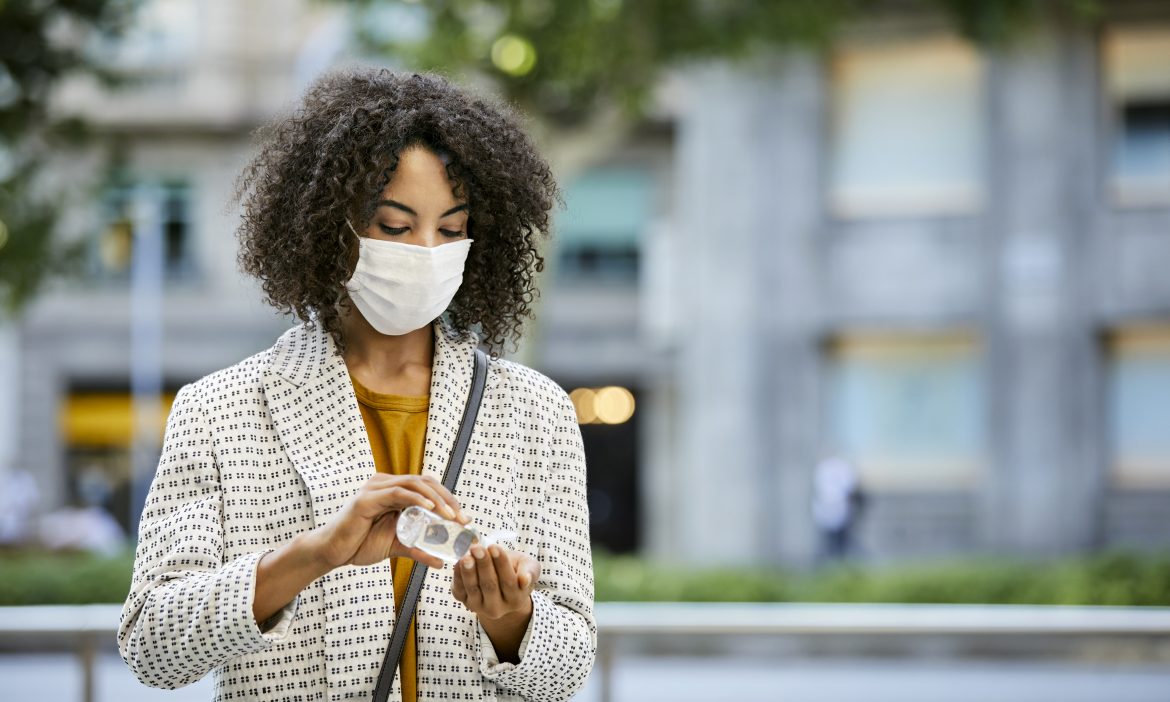Updated Nov. 16, 2020 with new statistics
Scientists are making progress toward a COVID-19 vaccine. More people are being tested daily, and testing centers across the nation are increasingly efficient. But the fact of the matter is that cases are on the rise in several parts of the U.S. — including Tennessee.
As of Nov. 16, the state says 43,101 people are infected with COVID-19, and that the number of active cases in Tennessee has risen 61 percent in the past two weeks. And as we enter the winter months, we expect to see cases continue to rise due to cooling temperatures and the need for more indoor activities. (The risk of transmitting the virus increases in close quarters.)
These factors show that now more than ever, it’s important to practice the safety measures recommended by public health experts.
And I understand that it’s easy to be frustrated and want to push back against them as “the new normal.” None of us enjoy seeing loved ones from afar, or having muffled conversations through face masks. We don’t like to think about spending a holiday season confined to our homes.
However, we must remain vigilant to protect the health of our loved ones and ourselves. Remember, it’s possible to spread COVID-19 before you have symptoms, so one person with the virus can infect many others if they aren’t following proper safety measures.
There are four best practices we should all continue to follow. No one of these is a magic wand we can wave that provides guaranteed protection — rather they work together, and when taken as a whole, they provide the greatest protection for us all.
- Practice social distancing.
Even though the colder weather will confine many of us indoors, you should avoid closed spaces outside of your home. If you must leave your home, choose locations that are conducive to maintaining an appropriate distance from others. If you are at the grocery store, the post office, your doctor’s office, using mass transit, etc., look for arrows or markers along the floor or walls that indicate where you should stand to avoid close contact.
- Wear a cloth face mask in public.
The CDC recommends almost everyone wear a cloth face covering to help slow the spread of the virus, with a few exceptions:
- children under age 2
- people who have trouble breathing
- people who are incapacitated and unable to remove a mask
Face masks work to block the respiratory droplets that carry the virus. Some studies show cloth masks can reduce transmission by 50-75%. And since people can spread the virus before they know they have it, wearing a mask can help limit the impact of COVID-19.
- Wash your hands with warm soapy water for at least 20 seconds and continue to disinfect frequently used surfaces.
In addition, carry hand sanitizer that’s at least 60% alcohol in case soap and water are unavailable. Fortunately, the nationwide hand sanitizer shortages we saw early on during the pandemic are no longer an issue.
- Follow local guidance – limit interactions with people you don’t live with, especially in large groups.
Some people may have the virus and show no symptoms. That’s why the more people you are around, and the longer you spend with them, the higher your risk of contracting COVID-19. As much as it pains us to spend a Thanksgiving without extended family, this year may be best spent with phone calls to loved ones, especially to seniors who are most at risk of catching the virus.
The flu factor
The rise in Tennessee COVID cases coincides with the annual influenza season.
We don’t yet know what dual flu/COVID-19 diagnosis will look like in the short and long term. That’s why everyone 6 months and older should get a flu shot as soon as possible.
Vaccines have been proven safe and effective for decades, and most individuals who receive the flu vaccine either avoid contracting the virus or have a milder case if they do. Studies have shown a flu shot can reduce the likelihood of catching the flu by 40-60%.
To provide vaccine awareness and access, the BlueCross BlueShield of Tennessee Foundation is funding drive-through flu clinics in early November in Middle and West Tennessee. Working with Ascension Saint Thomas, Jackson Clinic, and Baptist Memorial Health System, our goal for these clinics is to offer safety and convenience for those who may have anxiety about visiting a doctor’s office for their flu shot.
Remember, if you’re experiencing symptoms such as fever, chills, cough, fatigue, shortness of breath or difficulty breathing, or new loss of taste or smell, stay home and separate yourself from others. Next, call your provider’s office or local health department and tell them your symptoms.
Whether from the flu or rising COVID-19 cases, we can expect to see hospitals, doctors, nurses, and other health resources stretched thin during the next few months as they struggle to treat everyone.
Fortunately, many doctor’s visits can now be done virtually, and BlueCross encourages telehealth for our members as much as possible. If your doctor thinks you need to be tested or visit them in person, they will give you instructions for where to go and what to do.
By taking all of these steps as communities, we can help our state and nation heal, our local businesses stay open, and once more hold our loved ones close. But we all must be committed to the cause.


 Dr. Willis ensures that all clinical initiatives and quality endeavors support the needs of our members, and contribute to the overall health and well-being of our communities.
Dr. Willis ensures that all clinical initiatives and quality endeavors support the needs of our members, and contribute to the overall health and well-being of our communities.